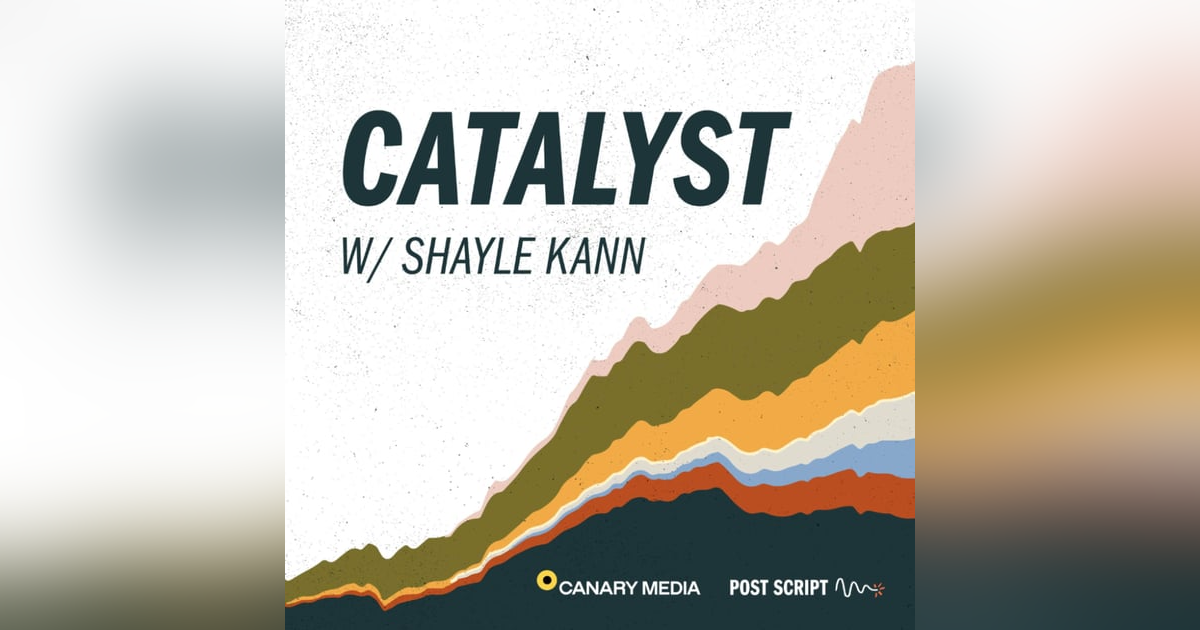Introducing: Catalyst with Shayle Kann - The Carbon Market's Quality Problem

Voluntary carbon credits are a lot like used cars: You really have no idea what their quality might be. Or maybe they’re more like expensive bottles of wine. Many people (or at least Shayle) can’t tell whether they’re actually buying good-quality wine. If it’s expensive, it must be good, right?
That’s the kind of logic that has plagued voluntary carbon markets for years.
A carbon credit can work in one of two ways. First, it can avert 1 metric ton of emissions that would have otherwise happened by, for example, preventing deforestation. Alternatively, a credit can directly remove a ton of carbon from the atmosphere through methods such as direct air capture or biochar.
But widespread reporting reveals that most credits don’t do what they say they do. Just this month, the CEO of the world’s leading certifier stepped down after an investigation by The Guardian revealed that over 90% of rainforest carbon credits were worthless. In May, a $1 billion lawsuit filed in California alleges that the credits that Delta Air Lines relies on for its claim of reaching carbon-neutrality are bogus.
Carbon credits have reached a crisis point at the same moment we need to massively scale them up to meet net-zero goals. So what do we do about these quality problems?
In this episode, Shayle talks to Allister Furey, co-founder and CEO of Sylvera, a company that rates the quality of credits in a manner akin to what agencies like Moody’s and Standard & Poor’s do for bonds.
Shayle and Allister cover topics including:
- The history of the first voluntary carbon markets and their early problems, such as producing fluorocarbons just to destroy them.
- The current state of the market, including its size, segments and prices.
- The wide gulf in price between the cheapest avoidance credits and the most ambitious engineered removal credits
- Why Allistair thinks we need to be on a “war footing” to reach the highly ambitious carbon-removal targets needed to meet net zero, such as growing the market from $2 billion to $1 trillion by 2050.
- Why high prices do not necessarily mean high quality.
Recommended resources:
- The Guardian: Revealed: more than 90% of rainforest carbon offsets by biggest certifier are worthless, analysis shows
- The Guardian: Delta Air Lines faces lawsuit over $1B carbon neutrality claim
Catalyst is a co-production of Post Script Media and Canary Media.
More episodes of Catalyst can be found here.
-----------
Have feedback or questions? Tweet us, or send a message to questions@importantnotimportant.com
New here? Get started with our fan favorite episodes at podcast.importantnotimportant.com.
-----------
Follow us:
- Subscribe to our newsletter at importantnotimportant.com
- Follow us on Twitter: twitter.com/ImportantNotImp
- Subscribe to our YouTube channel
- Follow Quinn: twitter.com/quinnemmett
- Edited by Anthony Luciani
- Produced by Willow Beck
- Intro/outro by Tim Blane: timblane.com
Advertise with us: https://www.importantnotimportant.com/c/sponsors


















